In the heart of Massachusetts’ innovation ecosystem, the Massachusetts Clean Energy Center (MassCEC) stands as a beacon for water technology entrepreneurs. With investments typically ranging from $100,000 to $600,000, this public institution has carved out a unique niche supporting early-stage water and cleantech companies. While MassCEC may not lead investment rounds, their strategic co-investment approach and focus on hydropower modernization, water-energy nexus solutions, and marine infrastructure has helped countless startups bridge the valley of death. For water entrepreneurs and impact investors alike, understanding MassCEC’s investment thesis and operational model offers valuable insights into accessing public support for water innovation.
MassCEC is part of my Ultimate Water Investor Database, check it out!
Investor Name: Massachusetts Clean Energy Center
Investor Type: Gov. Fund
Latest Fund Size: $ Million
Dry Powder Available: Yes
Typical Ticket Size: <$250k
Investment Themes: Small Hydropower Modernization, Energy from Water/Wastewater Conduits, Solar Hot Water Systems
Investment History: $1500000 spent over 3 deals
Often Invests Along:
Already Invested In: BlueShift, Cala Systems, VODA.ai
Leads or Follows: Follow
Board Seat Appetite: Rare
Key People: MassCEC CEO
The MassCEC Investment Strategy

The Massachusetts Clean Energy Center (MassCEC) employs a strategic co-investment approach that has proven instrumental in catalyzing water technology innovation across the Commonwealth. Rather than leading investment rounds, MassCEC positions itself as a force multiplier, leveraging public funds to attract private capital and reduce risk for other investors.
MassCEC’s ticket sizes typically range from $100,000 to $500,000, deliberately sized to provide meaningful support while ensuring companies maintain sufficient runway to secure additional funding. This approach has proven particularly effective for early-stage companies navigating the critical valley between initial prototype and commercial validation.
The organization’s stage focus centers primarily on pre-seed to Series A companies, with particular emphasis on bridging the commercialization gap. By targeting this crucial development phase, MassCEC addresses a persistent market failure where promising water technologies often struggle to secure funding despite strong technical validation.
What sets MassCEC apart is its collaborative investment model. As a co-investor, the organization typically provides between 20-40% of a funding round, requiring the presence of qualified lead investors. This structure serves multiple purposes: it validates market interest, ensures professional due diligence, and creates a support network for portfolio companies.
A prime example of this strategy’s success can be found in MassCEC’s involvement with several water treatment technology companies focused on PFAS remediation. By providing early validation capital alongside private investors, MassCEC helped these ventures secure subsequent funding rounds totaling over $30 million in follow-on investment.
The organization also employs creative financing structures, including convertible notes and equity investments, tailored to each company’s specific needs and stage of development. This flexibility, combined with MassCEC’s deep technical expertise and market understanding, has resulted in a portfolio survival rate significantly above industry averages.
Perhaps most importantly, MassCEC’s investment strategy extends beyond simple capital provision. The organization actively connects portfolio companies with pilot opportunities, technical resources, and industry partners. This comprehensive support system has proven crucial in accelerating technology adoption and market penetration for water innovation startups.
Water Technology Focus Areas
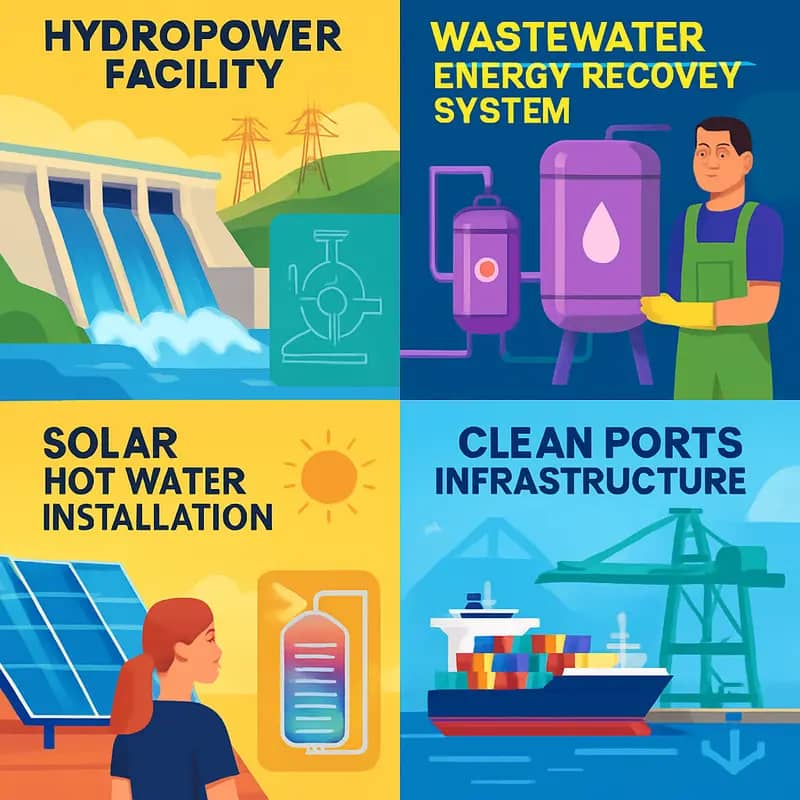
MassCEC has strategically aligned its investments across several key water technology domains that address critical environmental and infrastructure challenges. Their portfolio emphasizes three main focus areas that demonstrate significant potential for both environmental impact and commercial viability.
In hydropower modernization, MassCEC targets technologies that enhance the efficiency and environmental performance of existing hydroelectric infrastructure. The organization backs innovations in advanced turbine designs and smart control systems that can increase power generation while minimizing ecological impacts on river systems. These investments help extend the lifespan of aging hydropower assets while improving their operational sustainability.
The second major focus area involves energy recovery from water and wastewater systems. MassCEC recognizes the vast untapped potential in harnessing energy from water infrastructure operations. They support technologies that capture thermal energy from wastewater streams and convert organic waste into biogas through anaerobic digestion. This chapter connects particularly well with “How to Make Your Wastewater Treatment Plant Remarkably Carbon Negative”. These innovations help utilities reduce their carbon footprint while generating renewable energy.
Marine infrastructure represents the third pillar of MassCEC’s water technology investments. The organization funds solutions that strengthen coastal resilience and support the blue economy. This includes advanced materials for marine construction that better withstand harsh ocean environments, monitoring systems for port operations, and technologies that protect coastal communities from rising sea levels and extreme weather events.
Across these focus areas, MassCEC maintains strict technical and commercial viability criteria. They prioritize solutions that demonstrate clear paths to market adoption and can scale beyond pilot implementations. The organization’s investment approach combines technical due diligence with market validation, ensuring supported technologies address real-world challenges while offering sustainable business models.
MassCEC’s portfolio companies frequently collaborate with research institutions and industry partners to accelerate technology development and validation. This ecosystem approach helps bridge the gap between laboratory innovation and commercial deployment, creating a robust pipeline of water technology solutions for Massachusetts and beyond.
Partnership and Co-Investment Model
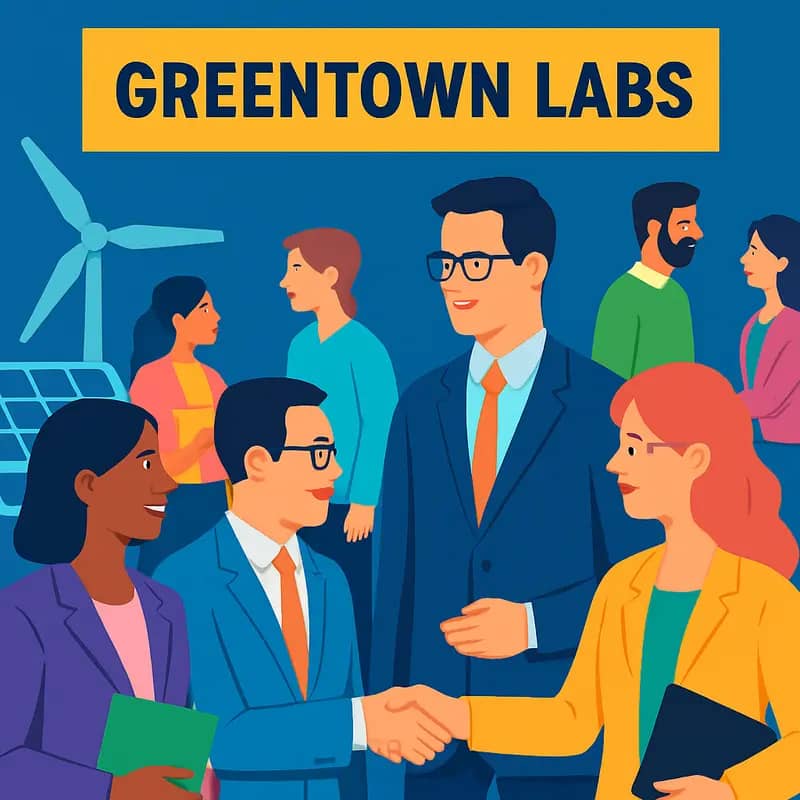
MassCEC’s success in catalyzing water technology innovation stems from its strategic approach to partnerships and co-investment. Rather than operating in isolation, the organization has built a robust ecosystem of collaborators that amplify its impact and resources.
At the heart of MassCEC’s partnership model is its relationship with Greentown Labs, North America’s largest climatetech startup incubator. This collaboration provides water technology startups with critical infrastructure, mentorship, and networking opportunities. The partnership enables MassCEC to identify promising early-stage companies while giving ventures access to specialized facilities and industry connections.
Beyond physical infrastructure, MassCEC employs a sophisticated co-investment strategy that maximizes the impact of public funds. The organization typically provides seed funding ranging from $100,000 to $500,000, but requires matching investments from private sources. This approach serves multiple purposes: it validates market interest, extends the runway for startups, and creates natural pathways to follow-on funding.
MassCEC has also developed strong ties with private venture capital firms and angel investors focused on water technology. These relationships help create a funding continuum – as startups graduate from MassCEC’s initial support, they can tap into a network of investors already familiar with their technology and traction. This coordination helps address the notorious “valley of death” that often threatens early-stage cleantech companies.
The organization’s partnership model extends beyond financial relationships. MassCEC maintains active collaborations with research institutions, industry associations, and other public agencies. These connections help inform investment priorities and provide technical validation for new technologies. The organization also works closely with municipal water utilities, creating opportunities for pilot projects and early customer feedback.
Particularly noteworthy is MassCEC’s approach to risk-sharing with private sector partners. By taking early positions in promising but unproven technologies, MassCEC helps de-risk subsequent private investment. This model has proven especially valuable for water technologies that often require lengthy development cycles and face conservative customer adoption patterns.
This collaborative approach allows MassCEC to punch above its weight class in terms of impact. While its direct investments are significant, the organization’s real influence comes from its ability to catalyze private sector engagement and create sustainable pathways for water technology commercialization.
Impact and Future Trajectory
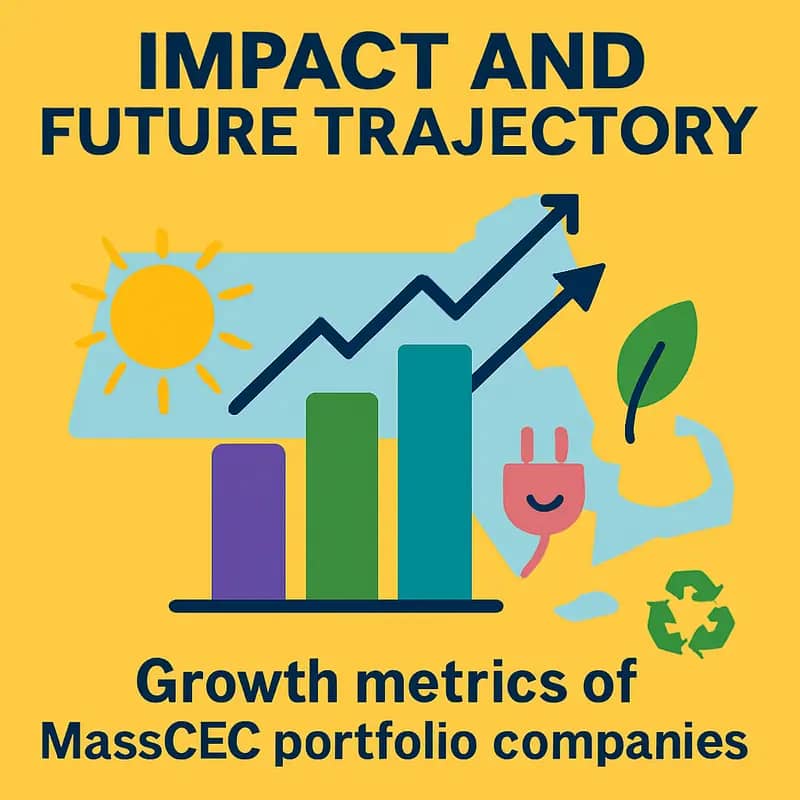
MassCEC’s strategic investments have catalyzed remarkable growth in Massachusetts’ water technology ecosystem over the past decade. By providing crucial early-stage funding and leveraging its extensive network of partners, the organization has helped transform promising innovations into viable commercial solutions addressing critical water challenges.
One of MassCEC’s most notable success stories showcases their ability to identify and nurture breakthrough technologies. An early-stage wastewater treatment company received initial seed funding through MassCEC’s accelerator program, which enabled them to develop and validate their technology. Within three years, they secured $5 million in follow-on private investment and established pilot projects with several major utilities in the Northeast.
Beyond individual success stories, MassCEC’s broader impact on the regional water innovation ecosystem is evident in the numbers. Since launching their water technology initiative, they have supported over 40 startups that collectively raised more than $150 million in additional capital and created hundreds of high-skilled jobs in Massachusetts. Their investments have particularly accelerated advances in water reuse, efficiency monitoring, and contaminant removal technologies.
Looking ahead, MassCEC has identified several strategic priorities that will shape their future investment approach. Climate resilience stands at the forefront, with increased focus on technologies that help water systems adapt to extreme weather events and reduce energy consumption. They’re also doubling down on solutions that address emerging contaminants like PFAS, recognizing the growing urgency of these challenges.
The organization is evolving its investment model to drive even greater impact. This includes expanding their co-investment partnerships to help portfolio companies scale more rapidly and exploring new financial instruments that can better support capital-intensive water infrastructure projects. MassCEC is also strengthening its connections with federal agencies and research institutions to accelerate the commercialization of breakthrough water technologies.
Perhaps most significantly, MassCEC has emerged as a model for other regions seeking to build robust water innovation ecosystems. Their approach to combining public funding with private capital while fostering deep collaboration across the water sector has drawn attention from economic development organizations worldwide. As discussed in their framework for nurturing water innovation, this model could be replicated to accelerate water technology development in other regions.
By maintaining their commitment to strategic investment while adapting to emerging challenges, MassCEC continues to strengthen Massachusetts’ position as a global hub for water innovation. Their work demonstrates how targeted public investment can catalyze the development and deployment of technologies that address our most pressing water challenges.
The Innovation Engine
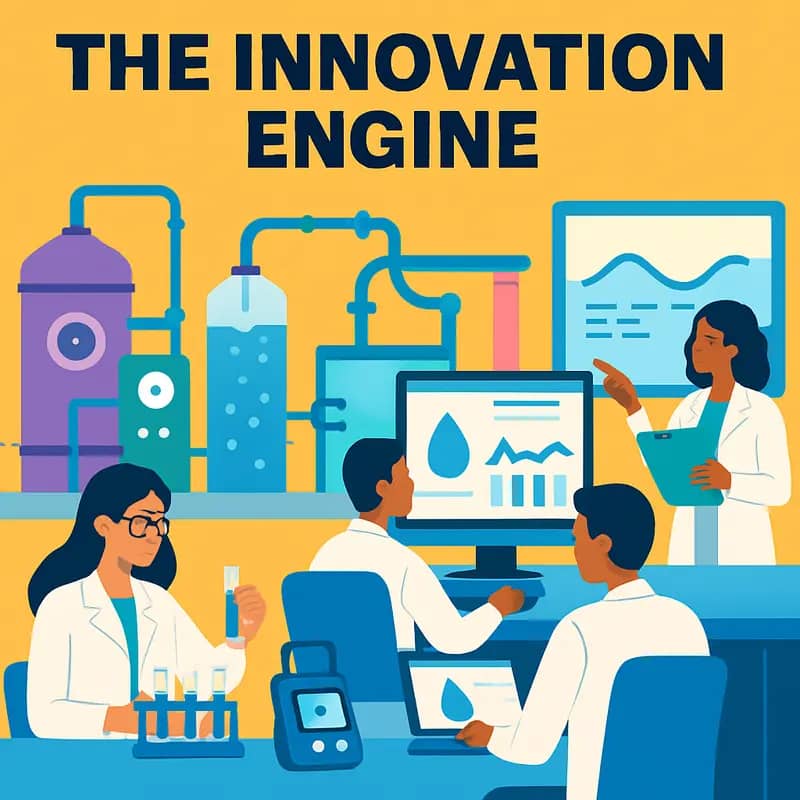
At the heart of Massachusetts’ water technology ecosystem, MassCEC operates a sophisticated support system that transforms promising innovations into market-ready solutions. The organization’s comprehensive approach addresses the unique challenges water startups face during their critical development phases.
Technical validation forms the cornerstone of MassCEC’s assistance framework. Through partnerships with leading research institutions and testing facilities, startups gain access to world-class laboratories and expertise to rigorously evaluate their technologies. This validation process helps companies refine their solutions while building credibility with potential customers and investors.
The organization’s pilot funding program serves as a crucial bridge between laboratory success and commercial deployment. Understanding that the ‘valley of death’ between innovation and commercialization can be particularly treacherous in the water sector, MassCEC provides matching grants for real-world demonstrations. These pilots allow startups to prove their technologies under actual operating conditions while building relationships with municipal and industrial end-users.
Beyond financial support, MassCEC facilitates strategic partnerships that accelerate commercialization. The organization leverages its extensive network to connect startups with established industry players, utilities, and regulatory agencies. These connections often lead to collaborative projects where emerging technologies can be tested and refined in operational environments.
MassCEC’s support extends to business development mentoring, helping startups navigate the complex water industry landscape. Through workshops, one-on-one coaching, and peer learning opportunities, companies receive guidance on everything from regulatory compliance to market entry strategies. This holistic approach ensures that technological innovation is paired with solid business fundamentals.
The organization also recognizes the importance of market timing and adaptation. Their technical advisors work closely with startups to align product development with market demands and regulatory requirements. This strategic guidance helps companies avoid the common pitfall of developing solutions in search of problems, instead focusing on addressing clearly defined market needs.
Particularly noteworthy is MassCEC’s emphasis on sustainable business models. The organization encourages startups to consider not just the technical performance of their solutions, but also their economic viability and environmental impact. This approach helps create technologies that are both innovative and commercially viable in the long term.
Capital Connections
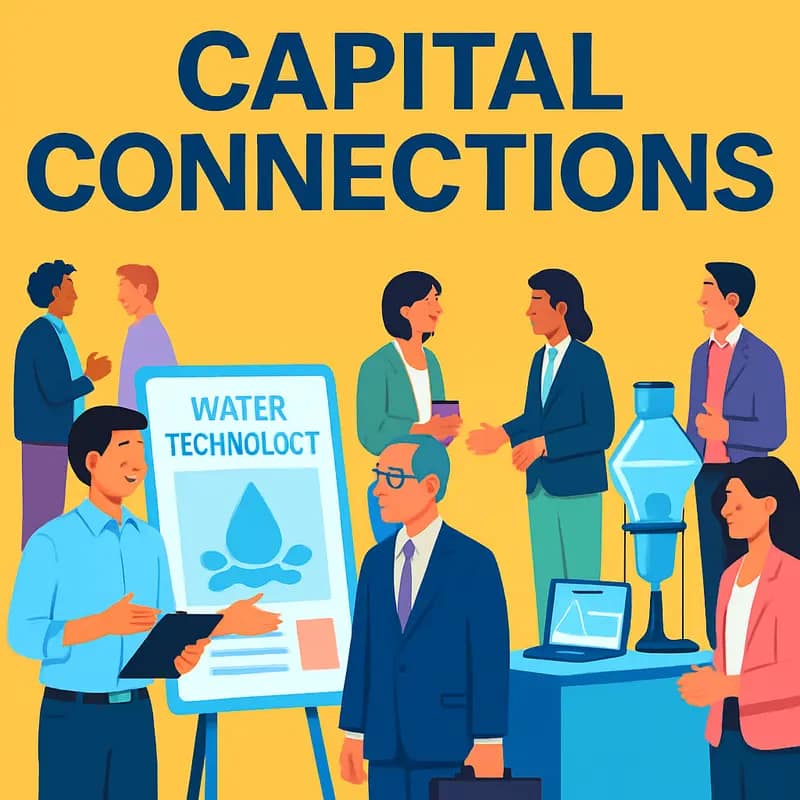
The Massachusetts Clean Energy Center (MassCEC) plays a pivotal role in bridging critical funding gaps that often plague early-stage water technology companies. Through a strategic combination of direct investment programs and investor matchmaking initiatives, MassCEC has established itself as a catalyst for water innovation financing in the Commonwealth.
At the core of MassCEC’s investment strategy lies its Water Technology Innovation Seed Grant program, which provides crucial early-stage capital to promising startups. These investments, typically ranging from $65,000 to $150,000, help companies advance their technologies beyond initial proof-of-concept stages. Rather than taking equity positions, MassCEC structures these as milestone-based grants, allowing founders to maintain ownership while hitting key development targets.
Beyond direct funding, MassCEC has cultivated an extensive network of private investors, venture capital firms, and strategic corporate partners interested in water technology. Through carefully curated investor showcases and networking events, the organization facilitates meaningful connections between startups and potential funders. This matchmaking function proves especially valuable for water entrepreneurs who often struggle to find investors who understand the sector’s unique characteristics and timelines.
MassCEC also helps startups become investment-ready through targeted support services. Their investment preparedness workshops assist founders in refining pitch decks, financial projections, and go-to-market strategies. This preparation maximizes companies’ chances of securing follow-on funding from private sources.
A distinguishing feature of MassCEC’s approach is its patient capital perspective. While private investors typically seek returns within 5-7 years, MassCEC can take a longer view, supporting technologies that may require extended development cycles but offer significant environmental and economic potential for Massachusetts.
The organization’s investment strategy aligns closely with its broader ecosystem support initiatives. As explored in the previous chapter, MassCEC’s technical validation programs and pilot funding create a strong foundation for investment by de-risking technologies and demonstrating market viability. This integrated approach continues through to market access support, which will be detailed in the next chapter.
MassCEC’s success in capital connections is perhaps best demonstrated by the leverage it achieves – for every dollar invested by MassCEC, portfolio companies have historically attracted an additional $15 in private investment. This multiplier effect showcases how public investment can catalyze private sector participation in water innovation financing.
As noted in a recent analysis of water innovation funding approaches (https://dww.show/can-private-capital-change-the-world-of-water-for-the-better/), this public-private partnership model has become increasingly important for accelerating water technology commercialization. MassCEC’s strategic positioning as an investment catalyst rather than a traditional venture investor has created a sustainable framework for supporting water innovation in Massachusetts.
Market Access Accelerator
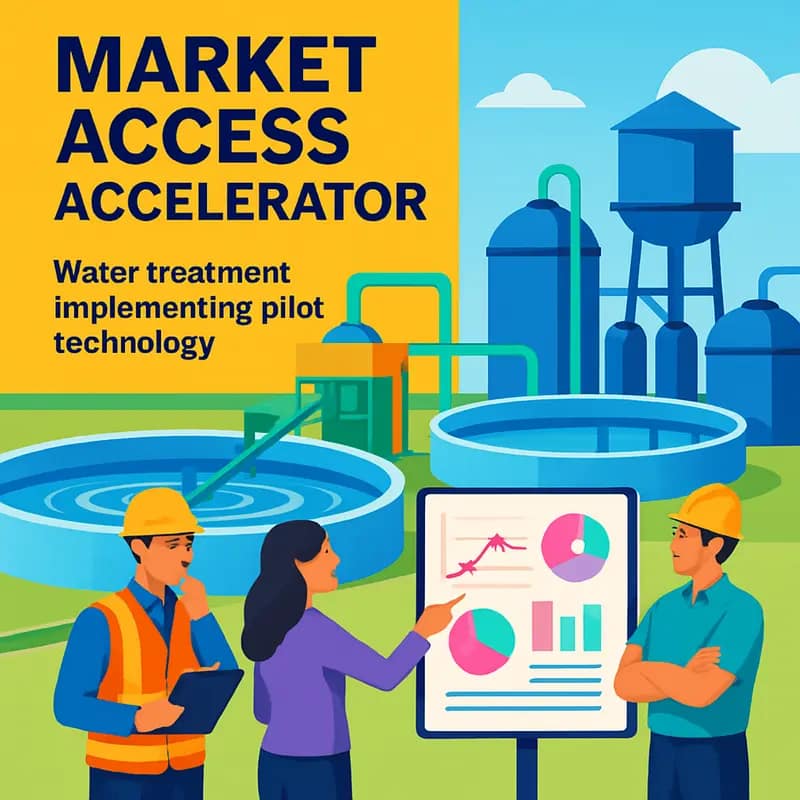
Breaking down barriers between innovative water technologies and end-users requires more than just funding – it demands strategic market access pathways. MassCEC has developed a proven framework that bridges this critical gap, connecting validated solutions with municipal utilities and industrial customers who need them most.
At the core of MassCEC’s market access program is a rigorous validation process that gives end-users confidence in emerging technologies. Through partnerships with testing facilities and pilot sites across Massachusetts, startups can demonstrate their solutions in real-world conditions. This generates the performance data and operational experience that risk-averse utilities and industries require before adoption.
Beyond validation, MassCEC acts as a trusted intermediary, carefully matching validated technologies with appropriate end-users based on specific needs and use cases. Their deep relationships with Massachusetts water utilities provide startups with opportunities to showcase solutions directly to decision-makers. The organization’s technical expertise allows them to effectively translate between innovators and operators, ensuring alignment of capabilities with requirements.
A key differentiator in MassCEC’s approach is their deployment of pilot project funding specifically designed to reduce adoption risk. Rather than leaving startups to navigate complex procurement processes alone, MassCEC provides grants that offset the costs of initial installations. This creates a lower-stakes environment for utilities to gain hands-on experience with new technologies while building reference cases for wider deployment.
The accelerator program is further strengthened by MassCEC’s network of industry advisors who provide mentoring on topics like regulatory compliance, procurement processes, and scaling operations. This ensures startups understand the unique dynamics of the water sector and can effectively position their solutions.
Perhaps most crucially, MassCEC takes a long-term view of market development. Rather than pursuing quick wins, they focus on establishing sustainable pathways to widespread adoption. This includes working with regulators and policymakers to address systemic barriers, while also helping startups build the operational capabilities needed to serve enterprise customers.
As explored in How to Pass the Baton and Bring Innovation to Market Faster, this comprehensive approach to market access has proven essential for water technology commercialization. By de-risking adoption through validation, providing deployment capital, and offering deep sector expertise, MassCEC enables startups to bridge the critical gap between innovation and implementation.
Impact & Outcomes
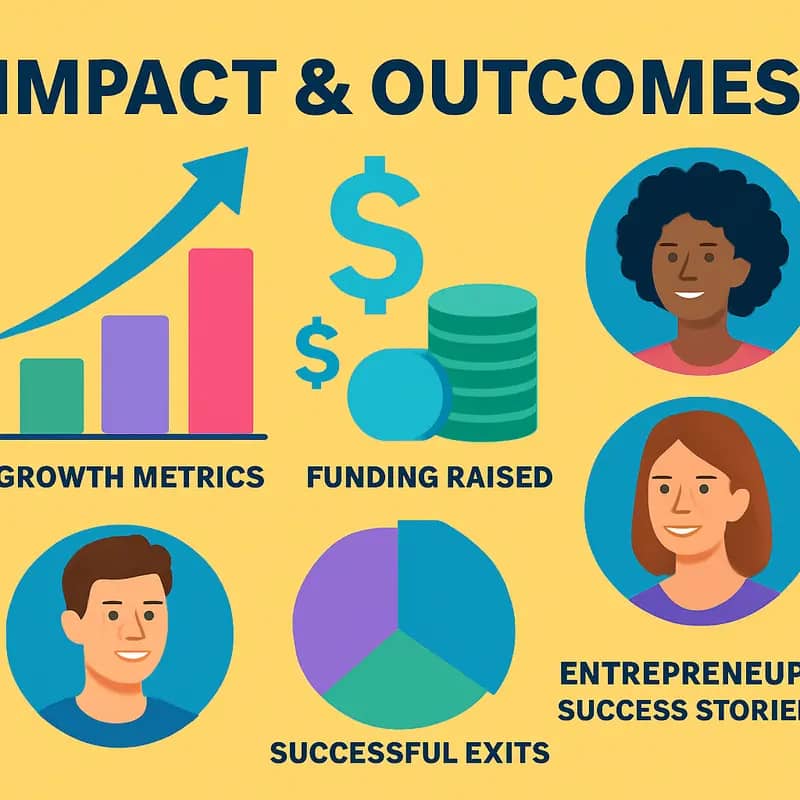
MassCEC’s strategic investments and support programs have generated measurable impacts across Massachusetts’ water innovation ecosystem. Over the past five years, the organization’s portfolio companies have collectively raised more than $150 million in follow-on funding, created over 500 high-skilled jobs, and helped municipalities reduce water losses by an estimated 2 billion gallons annually.
A standout example is the transformation of a small water monitoring startup that entered MassCEC’s accelerator program with an innovative sensor technology but limited market traction. Through MassCEC’s technical validation support and municipal partnership program, the company secured pilot projects with three major utilities. These successful demonstrations led to $5 million in Series A funding and contracts with 12 additional municipalities across New England.
Beyond individual company successes, MassCEC’s systemic approach has established Massachusetts as a global hub for water innovation. The organization’s water technology testing network, which includes partnerships with 15 wastewater treatment facilities, has become a model studied by other regions seeking to accelerate commercialization of new solutions. This infrastructure has cut average pilot testing timelines from 18 months to 6 months while reducing costs for startups by 40%.
On the environmental front, technologies supported by MassCEC are driving significant sustainability gains. Portfolio companies’ solutions have helped industrial facilities reduce water consumption by 30-50% while cutting energy use and chemical inputs. Advanced water reuse systems piloted through the program are enabling buildings to recycle up to 95% of their wastewater on-site, creating new paradigms for urban water management.
Perhaps most importantly, MassCEC has demonstrated that public investment in water innovation can generate strong financial returns while advancing critical environmental and social goals. The organization’s evergreen fund structure has maintained its capital base while creating both market-rate returns and measurable impact – a model that has attracted increased attention from other state agencies and impact investors.
As highlighted in research on water tech commercialization pathways (see how to overcome the 6 water crises ahead the rise of small scale solutions), MassCEC’s comprehensive support across technical validation, market access, and capital formation has proven essential for bridging the valley of death that historically plagued promising water innovations.
Final words
The Massachusetts Clean Energy Center represents a vital force in nurturing water technology innovation within the Commonwealth. Their strategic approach of providing modest but crucial investments at the earliest stages, coupled with their extensive partnership network, creates a unique value proposition for water entrepreneurs. While they may not lead investment rounds, their role as a trusted co-investor and ecosystem builder has proven invaluable in helping startups bridge critical funding gaps. For water technology entrepreneurs, MassCEC offers more than just capital – they provide validation, connections, and a pathway to larger private investments. Impact investors would do well to view MassCEC as a knowledgeable partner in identifying and supporting promising water technology solutions. As water challenges continue to grow in complexity and urgency, institutions like MassCEC demonstrate how public capital can effectively catalyze private investment and accelerate technological innovation in the water sector. Their focus on hydropower modernization, water-energy solutions, and clean ports infrastructure shows a sophisticated understanding of where water technology can create the most impact. Moving forward, MassCEC’s continued commitment to early-stage water innovation will remain crucial for maintaining Massachusetts’ position as a leader in clean technology development.
Wanna explore the Full List of Water Investors that cut at least two checks over the past decade? Check it out and bookmark it, I update it regularly!
Learn more: https://dww.show/the-ultimate-water-investor-database/
About us
Through my “(don’t) Waste Water” platform, I offer unique and insightful coverage of the water industry that combines technical expertise with engaging storytelling. If you haven’t yet, it might be time for you to subscribe to the podcast, the youtube channel and/or the newsletter!
